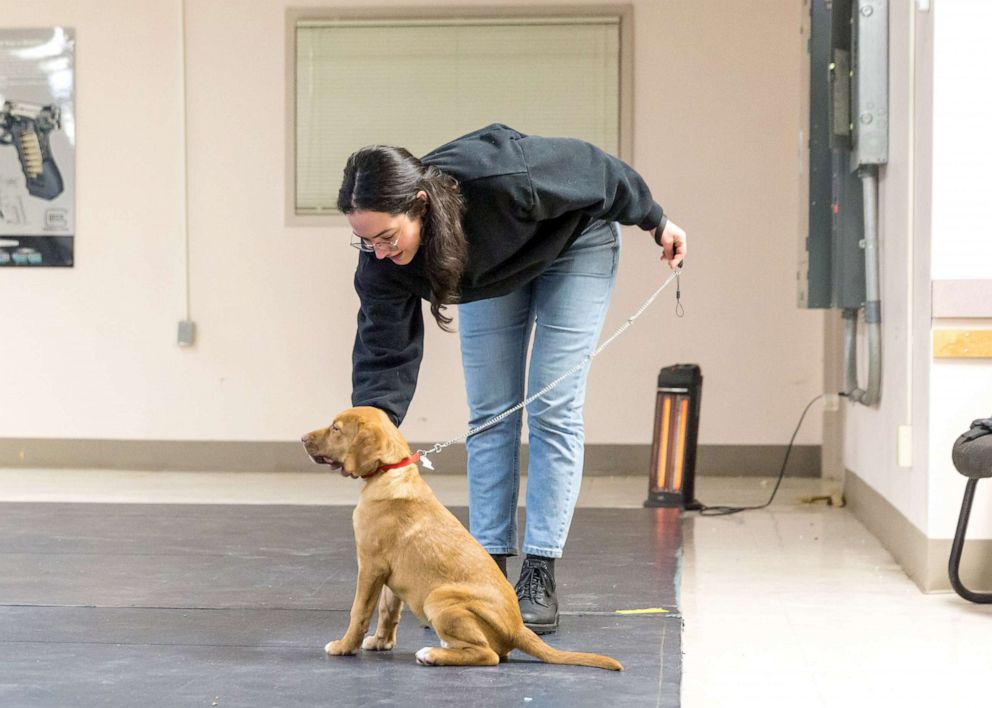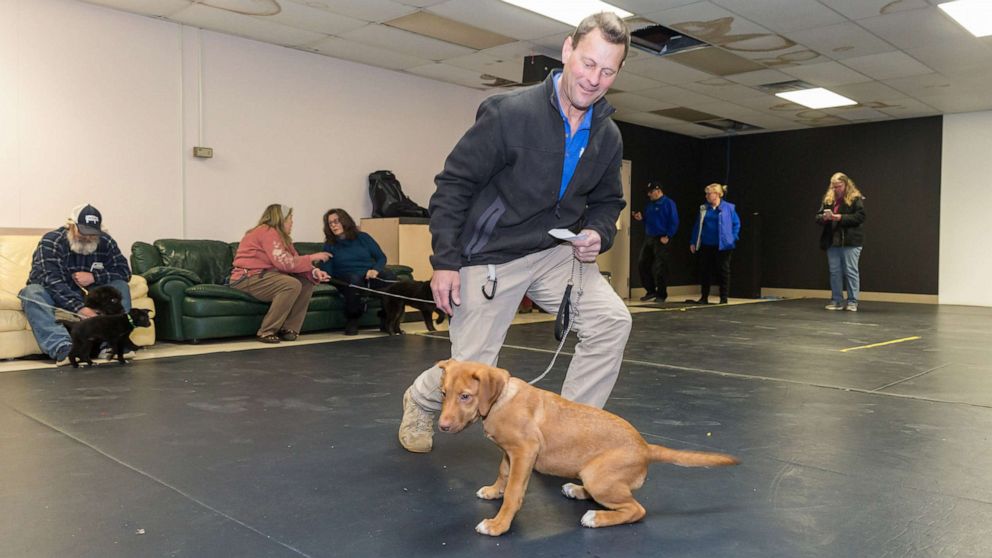Service dogs provide a lifeline for people with disabilities
For Robert Gaylog, his service dog, Callie, is crucial to navigating public spaces and maintaining his health. He suffered a traumatic brain injury and needed someone to help him after his wife died. That’s when Putnam Service Dogs came along and provided him with a mobility dog, free of charge, a moment that he said changed his life.
“We’re a good fit because Callie is a great navigator. I have trouble with steps. I do have a cane that I use. Most times [when] I fall it's because I don't have my cane. When I take Callie out, I do not use a cane.”
Now, the rescue lab-mix leads him through the grocery store, or supports him when he steps over a curb. She’s also allowed him to engage with the world in a way that he hasn’t for some time. A few months ago the pair attended the funeral of a veteran and Callie noticed family and friends walking to the casket to say their goodbyes. That’s when she stood up and led Gaylog so that he could do the same. He recalled the moment, tearfully saying this was when he put all of his trust in her.

He wasn’t always certain he wanted a service dog. Having Callie around meant giving up any ability to exist in public spaces without being looked at, or sometimes even being denied services. That’s what happened to Candace Camper when she tried to enter a restaurant with her service dog Clea last year. Often the general public has misconceptions about what service dogs do and what the law requires, Camper explained.
“The two questions that business owners are legally allowed to ask, which some people are scared to, are ‘Is the service dog required because of a disability and, if so, what tasks are the dog trained to perform?’”
Camper also says sometimes businesses ask for service-dog identification cards, which is illegal under the ADA.
But dealing with an uncertain public isn’t the only obstacle handlers face when their disability requires the assistance of a trained animal. Obtaining a service dog in itself can be a challenging task, which can cost between $15,000 and $50,000. Luckily, there are nonprofits like Paws4People to support those who need them, such as retired veteran Seth Eure.
“She kind of picked me in 2019 so we do what's called a bump where we run several dogs in front of the client and see which one's the best fit,” he said of his service dog.
Paws4People provided years of training to Eure’s psychiatric service golden retriever, Harris. And all he had to do was try to fundraise. Beyond that, the cost was covered. Now Eure works for the non-profit as their program manager of client training, teaching those in need how to work with a service dog.
Service dog handlers say that the pair is meant to work as a team and having the support of that team can change a life.
“One of the best feelings is being able to help the next person that's going through the process,” Eure said.




